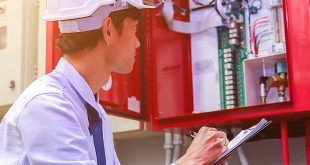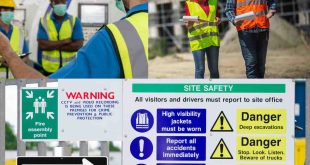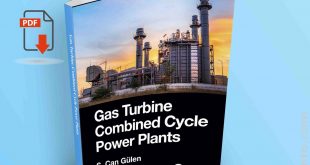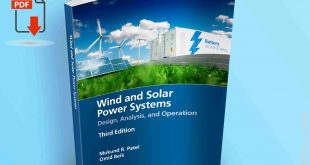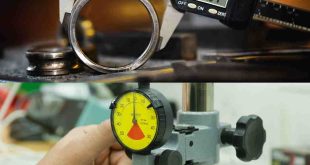Planning and Control of Maintenance Systems Effective maintenance management is vital for ensuring the smooth and efficient operation of industrial systems, machinery, and equipment. The planning and control of maintenance systems involve organizing, scheduling, and monitoring maintenance tasks to maximize equipment reliability, minimize downtime, and reduce costs. An effective maintenance …
Read More »Introduction to Risk and Failures
Introduction to Risk and Failures Risk and failure are inherent aspects of any system, process, or activity. Understanding and managing these elements is critical to ensuring the safety, reliability, and efficiency of operations across industries. This article explores the fundamental concepts of risk and failure, their causes and consequences, and …
Read More »Essential Practices for Process Safety Culture
Essential Practices for Process Safety Culture Process safety culture is a critical component in the successful and safe operation of industries dealing with hazardous materials and complex systems. It encompasses the shared values, attitudes, and behaviors of employees and management toward identifying, managing, and mitigating process safety risks. A robust …
Read More »Workplace Health and Safety International Perspectives
Workplace Health and Safety International Perspectives Workplace health and safety (WHS) is a universal concern that transcends industries and geographies, aiming to safeguard the well-being of employees and ensure operational efficiency. In an interconnected world, international perspectives on WHS are vital for sharing best practices, understanding diverse regulatory frameworks, and …
Read More »Gas Turbine Combined Cycle Power Plants
Gas Turbine Combined Cycle Power Plants: A Comprehensive Overview Introduction Gas Turbine Combined Cycle (GTCC) power plants represent a high-efficiency solution to modern power generation needs. By blending the strengths of both gas and steam turbines in a single system, they achieve thermal efficiencies exceeding 60%, significantly reducing fuel consumption …
Read More »Wind and Solar Power Systems
Wind and Solar Power Systems Design, Analysis, and Operation (2021) by Mukund R. Patel. The book is designed and tested as a textbook for a semester course for university seniors in electrical and mechanical engineering fields. The practicing engineers will get detailed treatment of this rapidly growing power industry segment. …
Read More »Coal-Fired Power Generation Handbook
Coal-Fired Power Generation: Fundamentals, Systems, and the Future Coal-fired power generation has historically been the backbone of electricity supply for many nations. Despite increasing interest in renewables, coal remains an integral part of the global energy mix, especially in developing countries. Understanding the complete coal power cycle—from resource occurrence …
Read More »Definitions, Conversions, and Calculations for OSHA
Definitions, Conversions, and Calculations for OSHA Introduction Occupational Safety and Health (OSH) professionals play a crucial role in ensuring the safety, health, and well-being of employees in various work environments. Their primary responsibility is to identify hazards, assess risks, and implement measures to prevent accidents and occupational diseases. To perform …
Read More »How Do Refrigerators Work?
How Do Refrigerators Work? Refrigerators are indispensable appliances in modern homes and industries, preserving food by maintaining a low temperature to slow down the growth of bacteria and mold. Understanding how refrigerators work involves delving into the technical aspects of refrigeration systems, exploring their components, and examining how temperature control …
Read More »How To Use Automotive Diagnostic Scanners
How to Use Automotive Diagnostic Scanners Automotive diagnostic scanners are invaluable tools for understanding and resolving vehicle issues. They’ve evolved significantly since the advent of On-Board Diagnostics (OBD), which emerged in the late 1980s to monitor emissions and engine performance. The introduction of OBD-II in 1996 standardized diagnostic systems across …
Read More »Engineering Metrology and Measurements
Engineering Metrology and Measurements Engineering metrology and measurements play a crucial role in ensuring the accuracy, reliability, and functionality of manufactured components. By employing precise measurement tools and techniques, engineers can verify that parts meet specified dimensions and tolerances, ensuring smooth assembly and optimal performance. Below is a detailed exploration …
Read More »Power Piping ASME Guide
Power Piping Systems: An Engineering Guide Based on ASME B31.1 Power piping systems are critical components in the infrastructure of thermal power plants, industrial facilities, and process plants. The ASME B31.1 Code—Power Piping Code—sets the benchmark for the design, fabrication, inspection, and testing of piping systems associated with electric …
Read More » Boilersinfo Boiler and Mechanical Power Digital Library
Boilersinfo Boiler and Mechanical Power Digital Library
